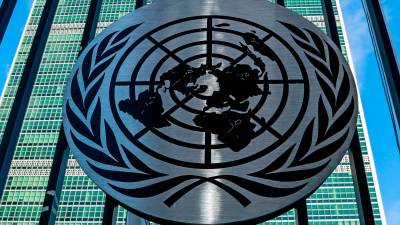GENEVA: The UN Human Rights Council will decide on Monday whether to establish an investigation to gather evidence on the most serious violations of international law in Afghanistan.
A draft resolution put forward by Denmark on behalf of the European Union will be discussed at the Geneva-based council.
The mandate of the UN special rapporteur on Afghanistan is up for annual renewal on Monday.
“This year, after careful and extensive consultations, the EU decided to table a resolution with a strengthened accountability element, notably proposing an independent investigative mechanism for Afghanistan,“ an EU spokesperson told AFP.
“The proposed mechanism will address the decades of impunity in Afghanistan.”
Highlighting the deterioration of human rights in Afghanistan, the draft resolution calls for establishing an ongoing independent investigation to collect, consolidate, preserve and analyse evidence of international crimes.
Its scope notably includes violations and abuses against women and girls.
It would also prepare files to facilitate independent criminal proceedings.
“The mechanism will be able to preserve testimonies and stories of victims,“ the EU spokesperson said.
The Taliban returned to power in Afghanistan in 2021 and imposed a strict version of Islamic law.
Four years on, the Taliban government remains largely excluded from the international community, which criticises it for repressive measures targeting women.
Afghan women can no longer practise many professions or travel without a male chaperone.
They are banned from studying after age 12, walking in parks, or going to gyms.
The draft resolution “deplores the Taliban’s institutionalisation of its system of discrimination, segregation, domination, disrespect for human dignity and exclusion of women and girls”.
It also strongly condemns the “Taliban-imposed ban” on Afghan women working for the United Nations and non-governmental organisations.
The resolution is a “significant milestone in the fight against entrenched impunity,“ Fereshta Abbasi, Afghanistan researcher for Human Rights Watch, told AFP.
It “puts the Taliban and all others responsible for past and ongoing serious crimes in Afghanistan on notice that evidence is being collected and prepared so they may someday face justice,“ she said.
The Human Rights Council is made up of 47 elected member states.
The Afghanistan draft resolution already has public backing of 14 council members, having been co-sponsored by Chile, France, Germany and Switzerland among others.
The last of the council’s three annual regular sessions closes on Wednesday. – AFP
